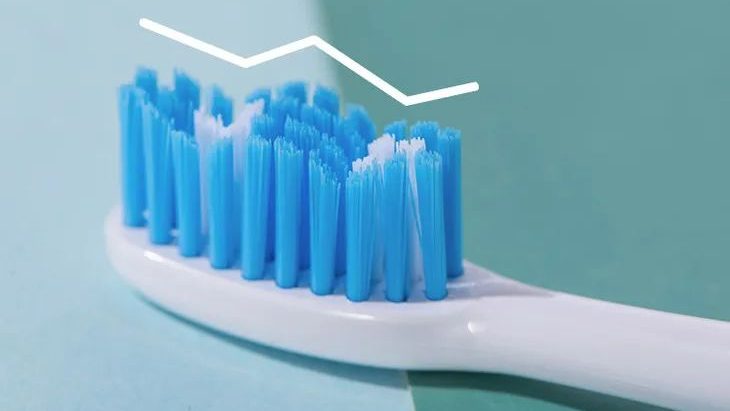How to Choose Toothbrush Bristles? 2025 Updated Scientific Guide: From Softness to Material, Master the Key to Dental Care in One Read!
Toothbrush bristles are a core factor affecting oral health, yet most people overlook the details of their selection. Based on dental research and user pain points, this article analyzes key indicators such as bristle softness, material, and rounding rate, teaching you to accurately choose based on tooth sensitivity, gum condition, and oral needs. Say goodbye to the misunderstanding of “wrong toothbrush damaging teeth” and turn every brushing into a scientific step for dental care.
Toothbrush Bristle Buying Guide: Don’t Let “Small Details” Ruin Your Oral Health
Have you ever been confused by bleeding gums or swollen gums after brushing? In fact, the choice of toothbrush bristles may be the key—it directly determines the cleaning efficiency and risk of oral damage. According to data from the American Dental Association (ADA), over 60% of gum problems are related to improper bristle selection. In 2025, with the upgrade of oral care technology, how to scientifically choose toothbrush bristles has become a necessary lesson for modern people’s dental care.

I. Core Indicators: 3 Dimensions to Judge Bristle Quality
1. Softness: Adaptation Logic from “Sensitive Skin” to “Deep Cleaning”
○ Soft bristles (≤0.18mm diameter):Suitable for people with sensitive gums, periodontitis, and children. Soft bristles reduce physical irritation to gums and avoid excessive enamel wear. However, note: overly soft bristles may lack cleaning power, so they need to be paired with correct brushing methods (e.g., Bass method).
○ Medium bristles (0.18-0.22mm):Suitable for most healthy people, balancing cleaning power and gentleness. If you consume a lot of pigmented foods (e.g., coffee, tea) daily, medium bristles can effectively remove plaque, but avoid violent horizontal brushing.
○ Hard bristles (≥0.22mm):Only recommended for short-term use by people with heavy tartar or severe tobacco/tea stains. Long-term use may cause gum recession and wedge-shaped defects on tooth necks, so it should be chosen under the guidance of a dentist.

2. Material: Nylon vs. Bamboo Charcoal vs. Spiral Filaments—Which Is Better?
○ Nylon filaments:The most classic material, with good elasticity and resistance to deformation, suitable for general cleaning needs. It is recommended to choose “rounded-tip” nylon filaments (rounding rate ≥80%) to reduce the risk of gum scratches.

○ Bamboo charcoal filaments:Added with bamboo charcoal components, focusing on “antibacterial” and “odor adsorption”, suitable for people with bacteria-prone mouths or bad breath. Note: Bamboo charcoal filaments are usually slightly harder than ordinary nylon filaments, so sensitive people need to be cautious.

○ Spiral filaments (composite filaments):A popular upgraded material in recent years. The spiral structure increases the contact area between bristles and teeth, enhancing cleaning power while maintaining softness, suitable for users pursuing efficient cleaning. However, the price is relatively high, so choose according to budget.

3. Rounding Rate: The Neglected “Key to Dental Care” The “tip rounding treatment” of bristles directly affects the rate of gum damage. Unrounded bristle tips are sharp and easy to scratch gums; while bristles with a high rounding rate (e.g., ≥90%) are softer to the touch, can clean between teeth deeply without irritation. When purchasing, observe the bristle tips: high-quality bristles should be “blunt” rather than sharp “needle-like”.
II. Scenario-Based Selection: “Customize” Bristles According to Oral Needs
● Sensitive people:Priority to “soft bristles + rounding rate ≥90%”, paired with fluoride toothpaste to reduce physical irritation.
● Orthodontic patients:Recommend “V-groove bristles” or “orthodontic-specific toothbrushes”. Their special design can clean gaps in braces and avoid food residue accumulation.
● Smokers/coffee lovers:Choose “medium bristles + spiral filaments” to enhance friction and cleaning power for tooth stains, but control brushing force (suggested pressure ≤150g, equivalent to the weight of an egg).
● Children:Must choose “ultra-soft bristles (diameter ≤0.15mm) + small brush head” to avoid gum damage caused by improper force control during children’s brushing.

III. Pitfall Avoidance Guide: Stop Paying for These “IQ Taxes”
1. Myth of “The More Expensive, the Better”:The bristle material of high-priced electric toothbrushes is not necessarily better than that of high-quality manual toothbrushes. The key depends on softness and rounding rate, not brand premium.
2. Trap of “Antibacterial = Sterile”:Some toothbrushes advertise “nano antibacterial”, but in fact, the balance of oral flora is more important. Excessive antibacterial may disrupt the oral microecology.
3. Hidden Danger of “Not Replacing for a Long Time”:No matter how good the bristle material is, it will deform and wear after 3 months of use. It is recommended to replace it in time to avoid reduced cleaning power and bacterial growth.
IV. 2025 Buying Trend: “Black Technology” of Smart Bristles
With the development of smart oral care, some electric toothbrushes have launched “pressure-sensitive bristles”—when brushing force is too strong, the bristles will automatically soften or reduce vibration frequency to protect gums in real time. In addition, degradable materials (e.g., corn fiber bristles) have become a new choice for environmentalists, balancing dental care and sustainability.

Conclusion:There is no “one-size-fits-all” answer to bristle selection, but there is “scientific logic”—based on your own oral conditions, starting from the three dimensions of softness, material, and rounding rate, and refusing to follow the trend blindly, you can turn brushing from a “habit” into an “investment in dental care”. Remember: a good bristle is the “first line of defense” for oral health; choosing the right one makes every brushing a plus for your teeth.
(Note: Data in this article refers to the 2025 Oral Care Products Industry White Paper and the latest ADA guidelines. When purchasing, it is recommended to combine professional dentist advice and conduct regular oral checks.)

